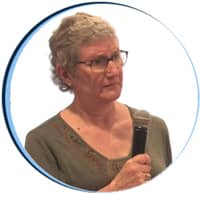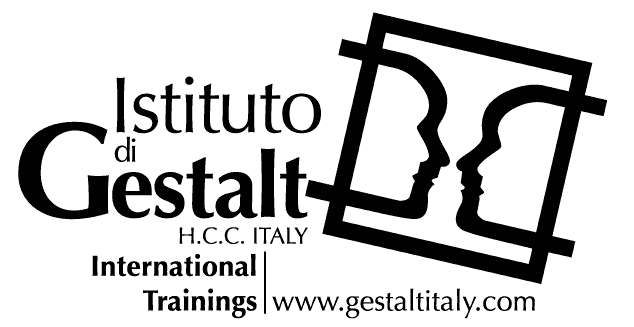with Ruella Frank, Nancy McWilliams, Fabiola Maggio, Lynne Jacobs, Natasha Kedrova, Erving Polster, Margherita Spagnuolo Lobb, Miriam Taylor, Carmen Vàzquez Bandìn
9 online seminars, videos recordings available on-demand, for a total of 45 hours
Sign up today and start watching the videos
We are living at a crucial moment when all that we have previously learned seems not to be enough. The pandemic has worsened anxiety problems in our clients and has generated a huge need for psychotherapy. Our practice is fuller than ever; people need our help, they feel the negative impact of a collective trauma. Moreover, we ourselves are also experiencing this trauma, and we need to take care of ourselves in order to be able to take care of others.
The pandemic has created new forms of suffering and new clinical needs that are important to be aware of in order to orient ourselves in various types of interventions. In this particular situation, our involvement in the collective trauma is a basic value for an empathic attitude towards our clients and their new suffering. The fragility that we share with our clients supports them to look for a real and human solution, which includes the limits of the situation as well as newly-generated hopes and intentionality.
This is a moment of great possibility, in which we can learn new ways of being psychotherapists. We can create an answer that integrates all that we have previously learned as we create a new form for each particular client.
The program will approach these points from different perspectives. Presenters are seven respected women, psychotherapists and trainers, who will offer participants their reflections and tailored support in these times. The first seminar will also offer an hour of live dialogue with Erving Polster, who will present his concept (and book) on enchantment in practice.
Trainers

Ruella Frank
Ph.D., is founder and director of the Center for Somatic Studies, NYC, and faculty at Gestalt Associates for Psychotherapy and the New York Institute for Gestalt Therapy. Ruella also teaches workshops and training programs throughout the United States, Mexico, South America, Canada and Europe. She is author of articles and chapters in various publications, as well as the book Body of Awareness: A Somatic and Developmental Approach to Psychotherapy (2001, GestaltPress, available in five languages). She is co-author of The First Year and the Rest of Your Life: Movement, Development and Psychotherapeutic Change (2010, Routledge Press), available in three languages. Her training video Introduction to Developmental Somatic Psychotherapy, is available

Nancy McWilliams
Ph.D., ABPP., is a Visiting Full Professor at the Graduate School of Applied and Professional Psychology at Rutgers University. She has written on personality and psychotherapy. McWilliams is a psychoanalytic/dynamic author, teacher, supervisor, and therapist. She currently teaches part-time at Rutgers University in New Jersey at the Graduate School of Applied and Professional Psychology and has a private practice in Lambertville, New Jersey. She is a former president of the Division of Psychoanalysis (39) of the American Psychological Association (APA).

Fabiola Maggio
Psychologist and Gestalt Psychotherapist, teacher of the Gestalt Institute hcc Italy. Nurturing a deep interest in the body, she deepened her studies in New York at the Center for Somatic Studies with Ruella Frank, studying her approach “Developmental Somatic Psychotherapy” and attending with her the Teacher Training Program in Stockholm. She works in private practice and in schools as an assistant to autonomy and communication. She is also a teacher of infant massage and a Shiatsu operator.

Lynne Jacobs
Ph.D., Both a gestalt therapist and a psychoanalyst, she is a co-founder of PGI. She is also a training and supervising analyst of the Institute of Contemporary Psychoanalysis (ICP) in Los Angeles. Lynne Jacobs teaches at ICP, and teaches gestalt therapists locally, nationally, and internationally. She has published numerous articles in both realms, and her most recent work is Relational Approaches in Gestalt Therapy (co-edited with Rich Hycner). Lynne Jacobs has a private practice in West Los Angeles.

Natasha Kedrova
Director of the Moscow Gestalt Institute. She has worked as a researcher in the Laboratory of Child Development (1987-1994), and was Head of School Psychology Service in the private Moomin-troll school (1994-2004). She is also a lecturer in the Moscow University of Psychology and Pedagogy. She has been in private practice since 1993 as a Gestalt therapist with children, adolescents and families, and as a supervisor since 1996, for school psychologists, psychologists for children with special needs, art therapists, and psychotherapists. Natasha is Head of Faculty “Gestalt therapy with children and families” at Moscow Gestalt Institute and author of several articles on Gestalt therapy with children in addition to the book The Alphabet of Emotions (2015). She is a member of the Association of Practicing Psychologists (Gestalt-Approach) and Board member (Ethical and Certification Committees). She is a member of EAGT.

Erving Polster
Ph.D., is a veteran teacher of Gestalt therapy and the author of several books. His major interests have long been the transformation of psychotherapy as a curative process into psychotherapy as a communal source of orientation and guidance. In 1958, he became first faculty Chairman of the Gestalt Institute of Cleveland and remained in that position until 1973, when he and his wife, Miriam, formed the Gestalt Training Center-San Diego, where for 25 years they taught Gestalt therapy. His last book Enchantment and Gestalt Therapy (published by Routledge for the Gestalt Therapy Book Series) is a personal exploration of Erving Polster’s remarkable career, the value of the Gestalt approach, and the power of enchantment in psychotherapy.

Margherita Spagnuolo Lobb
Psychotherapist and researcher, international trainer, Director of the Istituto di Gestalt HCC Italy (Syracuse, Palermo and Milan). In her clinical work, she developed the principles of Gestalt therapy with a hermeneutic way into a field oriented, phenomenological and aesthetic approach. Her book The Now-for-Next in Psychotherapy is available in 8 languages. She received the Lifelong Achievement Award from the Association for the Advancement of Gestalt Therapy – AAGT (Toronto, Canada, August 2018).

Miriam Taylor
British Gestalt psychotherapist (UKCP registered), supervisor and trainer who has been in private practice since 1995. She was clinical lead of a young peoples’ service and for several years worked in a specialist trauma service. She teaches in the UK and internationally, has been a trainer, Academic Consultant and examiner for Metanoia Institute, London, and is on the Leadership Team of Relational Change. Publications include Trauma Therapy and Clinical Practice: Neuroscience, Gestalt and the Body (2014), and several peer reviewed and invited articles.

Carmen Vàzquez Bandìn
Founder and director of the Centro de Terapia y Psicologia – CTP in Madrid, Spain. International Gestalt therapy trainer and supervisor. Co-director of the Gestalt therapy publishing company: Los Libros del CTP. Author of books, chapters and articles on Gestalt therapy. Spanish translator of books and articles on Gestalt therapy. Founder of the international conference of Gestalt therapy writers in Spanish (2001). Member of scientific board of some Gestalt journals.
Program (45 hours)
Seminar 1
Margherita Spagnuolo Lobb – Supporting the Aesthetic Relational Knowledge in a Collective Trauma
Erving Polster – Enchantment in Gestalt Therapy: live dialogue
One of the main clinical problems that has emerged during pandemic is the desensitization of the body, a creative adjustment to experienced anxiety. The emergency of the pandemic has generated an increase in anxiety disturbances: the fear of dying, of having no future, of losing loved ones, and the important things in one’s life, without being able to prepare for it. These are the given conditions of peoples’ ground experience. The aesthetic tools in clinics give the therapist the possibility to capture the patient’s vitality and to respond with her own capacity for enchantment-in-contact. This creates a therapeutic dance that restores the patient’s intentionality of contact and the direction of her existence. Participants will experiment with their aesthetic relational knowledge in practice.
Erving Polster will teach the last hour, and discuss on his most recent book.
Seminar 2
Nancy McWilliams – Leaving the Nest in a Post-Pandemic World: Helping Contemporary Young People
Dread of a cataclysmic future has always been part of the human condition, as communities have feared wars and natural disasters. But expectation of planetary apocalypse is a newer terror and not an irrational one. And while there have always been individuals with paralyzing guilt about their comparative advantages, a global perspective makes some young people now feel that while anyone on the earth is suffering, they are not entitled to pursue life satisfactions. These dynamics of dread and guilt create profound helplessness; in the United States, clinicians are increasingly seeing adolescents and young adults who view efforts to improve their own lives as selfish and illegitimate. Complicated by pandemic realities that interfere with opportunities to feel a sense of agency dread and guilt impede their moving forward developmentally. I look forward to talking with Italian colleagues about how to help these developmentally-stalled clients.
Seminar 3
Margherita Spagnuolo Lobb – Too Close and Still So Distant: Supporting the Field of Couples
In spite of an increased possibility for closeness that restrictions connected with the pandemic have offered, it often remains difficult for couples to be fully present for each other. Bodily desensitization that was prominent in intimate relationships even before pandemic, calls for a support for the capacity of the couple to reach each other in the fullness of their senses and souls. Relational dimensions of successful contact-making in couples will be approached, and a structure for couple psychotherapy settings will be experimented with.
Seminar 4
Natasha Kedrova – The Rehabilitation of Joy. New Relational Sufferings in Children
The pandemic created a new experience for children and their caregivers. Death is constantly present, adults are frightened and are not able to protect children, and to be safe means to stay at home in front of a computer. There is less movement, less contact. The pandemic created a strong fear between child and adult and provoked increased restriction and isolation, a lack of the feeling of being a real person in a real world. The rehabilitation of joy as a healthy connection between child and caregiver is an important task for psychologists and psychotherapists now. I will explore how the perspective of time, safe space, free movement, voice and touching, the experience of growth and of being alive can create mutual support between child and caregiver.
Seminar 5
Margherita Spagnuolo Lobb – Shall We Dance? A Relational Perspective on Depressive Experiences
Depression and the risk of suicide are among the most significant concerns in the post-pandemic world. What is meant by a depressive experience today? The contrast between the many possibilities for connection and the lack of a sense of future in young people is a challenge for psychotherapists. We need to be aware of which relational dimensions are involved in the current experience of depression. I will present research on the relational dimensions of depressive feelings, in order to provide a broader spectrum of depressive experiences and to help therapists to work in a more oriented and effective way with these patients.
Seminar 6
Carmen Vazquez Bandin – A Walk Through Love and Death. Mourning in the Time of the Pandemic
Lynne Jacobs – Therapy as mourning
Carmen Vazquez Bandin: Accepting the death of a loved one is always difficult. In these times of the COVID-19 pandemic, the grieving process is even more difficult and complicated. Every death is unique, and we are never prepared for it. During this seminar, some aspects of the process of grief in the time of the pandemic will be explored.
Lynne Jacobs: Therapy is, in part an exploration of conflicts between “refusals.” Resistances are an adamant refusal to be killed off. They are at once life-saving, and life-deadening. The refusal to mourn is central to the process of therapy, and supporting a process of mourning re-enlivens one to embrace life fully, even while “sadder but wiser.”
Seminar 7
Miriam Taylor – Oppression, Trauma and the Body
Traumatic experiences commonly involve an imbalance of power, both as cause and as outcome. The fundamental split between the powerful and the oppressed is a trauma response held primarily in the body. Thus, a lived experience of “otherness” is created, of relevance to therapists in the way it manifests through issues of identity and belonging. This workshop seeks to get underneath the dynamics of power and oppression, in order to better understand our clients’ experience and intervene with increased sensitivity. We will explore this central theme through exploration of theoretical models as well as experiential exercises. The notion of power as a primary organizer of our experiential worlds will play an important part in the work. This will bring us to apply this thinking about power and oppression to different inter-related situations, firstly within society, secondly within mental health provision, and finally in the therapeutic relationship. This will be linked to trauma theory through recognition of fear/threat systems and understanding of the role of adaptations in response to these.
Seminar 8
Ruella Frank – Diagnosing Pathological Fields through Movement: A Phenomenological Approach
Neurotic styles of behavior will be explored through the analysis of “movements of the field” that are expressed and can be experienced in the actual situation of therapy. These fundamental supports that underlie the interacting of contacting describe moments of fluidity or fixation within the unfolding therapeutic relationship. Participants will discover how potentially lively interactions become blocked, losing the capacity for creative spontaneous adjusting, and how a revitalization of creative animation is made possible by attending to movement. Special attention will be given to how both patient and therapist can attune to their various modes of giving and receiving what is offered, either welcoming or rejecting, within the moment-to-moment processes of therapy.
Seminar 9
Margherita Spagnuolo Lobb and Fabiola Maggio – Creating a New “Normality” to Get out of Trauma: Movements in the Field and Vitality
In this final seminar, the role of psychotherapy in recovering people’s sense of normality will be addressed. Very soon, the core of our therapeutic work will be how to get out of the trauma and recover a new “normality.” What sense of security and rootedness will we be able to draw on in order to reconstruct a secure background on which to rest in our daily lives? The role of movement in recovering the vitality that accompanies the restoration of normality and the possibility of feeling fully present in relationships and creative will be explored.
Language
English
Participants
Previous training in Gestalt therapy and a minimum of clinical experience is required.
Diploma
A diploma will be provided to psychotherapists who will attend the full program online.
How to see the videos on-demand
After the registration and payment your will receive an email with instruction to access the recordings of the seminar using a modern platform.
Information
Please contact us at [email protected]
Registration
The total cost for 9 seminars is 320 Euro
Registrations are still open. You will access the recordings of the seminars.
For any assistance [email protected]
After payment we will use the order data to issue an invoice. Take care to insert your email, name, address correctly.
For any assistance after-order write to [email protected] attaching the order confirmation within 24 hours.
You will receive an email with instructions to access the recordings of the seminars.

